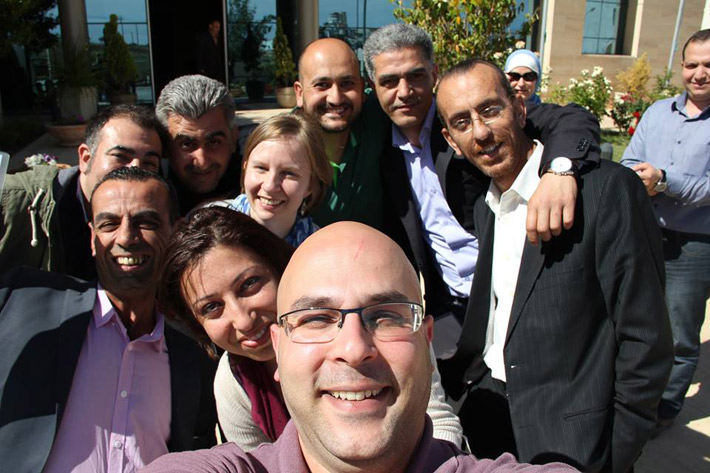When I was asked to teach a workshop on data journalism in the Middle East, my reaction was, “Sure. But do they have data?”

My work as a data journalist for Global News relies heavily on the use of Freedom of Information legislation to obtain government databases and documents, which I then turn into stories. I wasn’t sure whether it was possible to find this kind of data in Jordan, where I was doing the workshop.
Jordan and Israel, as it turns out, are only countries in the region with access to information laws. But, as I heard from my students and other local journalists, the laws and the way they’re followed (or not) can be extremely problematic. Like in Canada, there are often major delays in obtaining information and months of prodding are often required to get the government to release something. Often information is omitted or the entire request refused on security or other grounds.
Unlike in Canada (I hope), according to one journalist at the Forum for Media Defenders in the Arab World, the government sometimes also releases deliberately false information. If that’s true, it’s pretty alarming – it would basically render the access to information system pointless.
And of course, said journalists in the workshop, the government often releases information in pdfs – one of my own pet peeves. We spent a fair amount of time commiserating about how hard it is to get information out of a pdf. It was comforting to know that journalists all over the world hate that file format.
But information does exist. And like all journalists, my Jordanian students are pushing for more.
My students were some of the top newspaper editors and reporters in the country, hoping to use the techniques they learned in my workshop to mentor other journalists who were interested in data journalism.
They learned quickly, employing advanced Excel techniques and creating simple maps from story ideas they spotted in the data.
And they asked me about how journalism is practiced in Canada.
“Do Canadian journalists pay their sources?” asked one.
“No,” I said, to cheers from the classroom. “Well, almost never,” I amended, citing the Globe and Mail’s recent purchase of photos of Rob Ford allegedly consuming drugs and the Toronto Star’s purchase of a short video of the mayor in an apparent rage. They were less pleased by this response.
They were interested to hear whether the oil industry had any influence in Canadian politics. They wanted to know about how to request information from the U.S. government for use in their own stories. They wanted to know whether data journalism stories ever resulted in positive policy changes.
The journalists I met in Jordan were smart, enthusiastic and curious. And over lunch, during the many smoke breaks, and at massive, delicious dinners in the city, they told me how they were pursuing stories about human rights abuses, sometimes at personal risk, and pushing for more open government.
Hopefully they get it.
Leslie Young was in Amman, Jordan, as a trainer with Journalists for Human Rights.



Comments